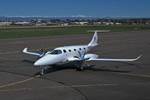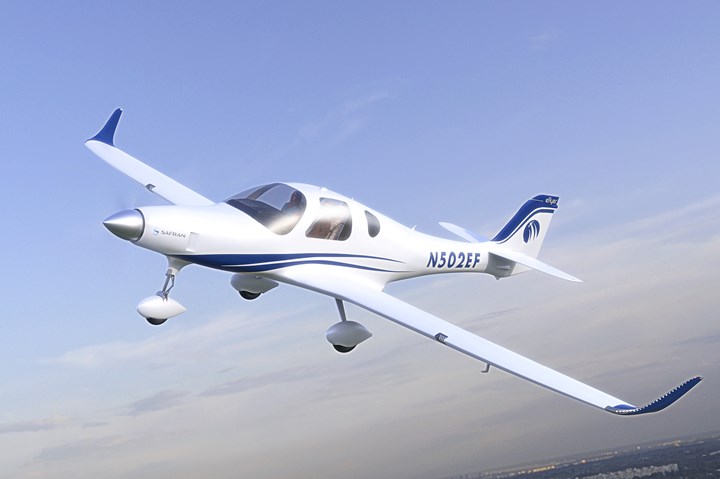Bye Aerospace eFlyer2 approved for flight test certification
The FAA has approved the composites-intensive, all-electric aircraft as eligible for certification under Part 23, enabling the Denver-based OEM to start certification testing.
Electric aviation company Bye Aerospace (Denver, Colo., U.S.) has reached Federal Aviation Administration (FAA) approval of its G-2 “Means of Compliance for Certification” issue paper, a major milestone in the certification process of the company’s two-seat, all-electric eFlyer 2 aircraft, which is all-new, purposely designed with electric propulsion and features a composite fuselage and wings.
The Means of Compliance for Certification was divided into 16 specific certification plans covering all systems, subsystems and procedures. All 16 certification plans have been accepted by the FAA. Bye Aerospace claims that this represents the first such approval in the general aviation industry, worldwide, by the FAA under Amendment 64 of FAR 23 for a Level 1 all-electric aircraft.
“With this major milestone approved, Bye Aerospace is now poised to enter the testing and compliance demonstration phase of the certification, including the fabrication of eFlyer 2 serial #001, and several production conforming aircraft,” George E. Bye, CEO, says. “We remain on course to have the world’s first Part 23 Amendment 64 FAA certified fixed-wing aircraft. Bye Aerospace received FAA approval of its G-1 (Certification Basis) issue paper August 31, 2020.”
Bye Aerospace previously applied for the eFlyer 2 type certificate in April 2018 for FAA certification under FAR Part 23 as the first “Level 1,” normal category, all-new design, all-electric aircraft to be certified under the new Amendment 64 rules.
The G-2 issue paper documents the accepted means of compliance to the FAA certification basis established for the Bye Aerospace eFlyer 2 aircraft (Project No. TC09549CH-A). The eFlyer 2 has been found to be eligible for a type certificate, as the applicant has proposed, and the FAA has found the type design complies with the U.S. type certification basis. In addition, the FAA has determined that no feature or characteristic of the eFlyer 2 aircraft makes it unsafe for the category in which certification is requested.
According to businessairportinternational.com, eFlyer2 development began in 2014, with the “first developmental prototype version flown for two years.” Bye Aerospace says it has a production backlog worth more than $1 billion for the aircraft.
Related Content
-
Nine factors to consider when designing composites cure tooling
Gary Bond discusses the common pitfalls and compromises when designing good cure tooling and their holistic significance for a robust composite production process.
-
3D-printed CFRP tools for serial production of composite landing flaps
GKN Aerospace Munich and CEAD develop printed tooling with short and continuous fiber that reduces cost and increases sustainability for composites production.
-
Jeep all-composite roof receivers achieve steel performance at low mass
Ultrashort carbon fiber/PPA replaces steel on rooftop brackets to hold Jeep soft tops, hardtops.
















